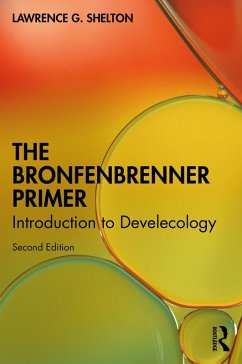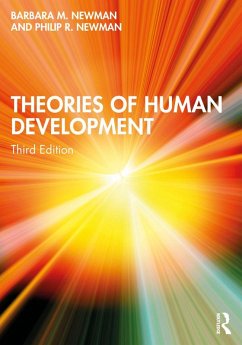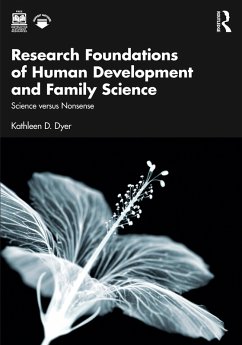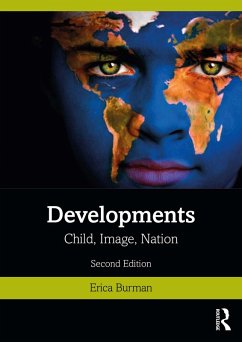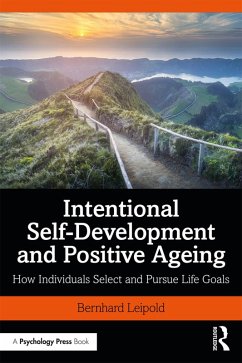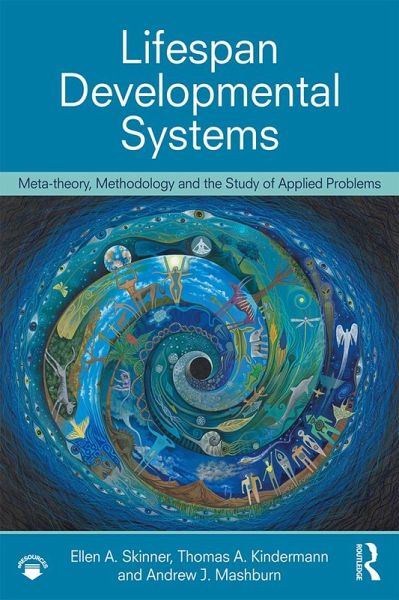
Lifespan Developmental Systems (eBook, PDF)
Meta-theory, Methodology and the Study of Applied Problems
Versandkostenfrei!
Sofort per Download lieferbar
37,95 €
inkl. MwSt.
Weitere Ausgaben:

PAYBACK Punkte
19 °P sammeln!
Everything you always wanted to know about theories, meta-theories, methods, and interventions but didn't realize you needed to ask.This innovative textbook takes advanced undergraduate and graduate students "behind the curtain" of standard developmental science, so they can begin to appreciate the generative value and methodological challenges of a lifespan developmental systems perspective.It envisions applied developmental science as focused on ways to use knowledge about human development to help solve societal problems in real-life contexts, and considers applied developmental research to...
Everything you always wanted to know about theories, meta-theories, methods, and interventions but didn't realize you needed to ask.
This innovative textbook takes advanced undergraduate and graduate students "behind the curtain" of standard developmental science, so they can begin to appreciate the generative value and methodological challenges of a lifespan developmental systems perspective.
It envisions applied developmental science as focused on ways to use knowledge about human development to help solve societal problems in real-life contexts, and considers applied developmental research to be purpose driven, field based, community engaged, and oriented toward efforts to optimize development. Based on the authors' more than 25 years of teaching, this text is designed to help researchers and their students intentionally create a cooperative learning community, full of arguments, doubts, and insights, that can facilitate their own internal paradigm shifts, one student at a time.
With the aid of extensive online supplementary materials, students of developmental psychology as well as students in other psychological subdisciplines (such as industrial-organizational, social, and community psychology) and applied professions that rely on developmental training (such as education, social work, counseling, nursing, health care, and business) will find this to be an invaluable guidebook and toolbox for conceptualizing and studying applied problems from a lifespan developmental systems perspective.
This innovative textbook takes advanced undergraduate and graduate students "behind the curtain" of standard developmental science, so they can begin to appreciate the generative value and methodological challenges of a lifespan developmental systems perspective.
It envisions applied developmental science as focused on ways to use knowledge about human development to help solve societal problems in real-life contexts, and considers applied developmental research to be purpose driven, field based, community engaged, and oriented toward efforts to optimize development. Based on the authors' more than 25 years of teaching, this text is designed to help researchers and their students intentionally create a cooperative learning community, full of arguments, doubts, and insights, that can facilitate their own internal paradigm shifts, one student at a time.
With the aid of extensive online supplementary materials, students of developmental psychology as well as students in other psychological subdisciplines (such as industrial-organizational, social, and community psychology) and applied professions that rely on developmental training (such as education, social work, counseling, nursing, health care, and business) will find this to be an invaluable guidebook and toolbox for conceptualizing and studying applied problems from a lifespan developmental systems perspective.
Dieser Download kann aus rechtlichen Gründen nur mit Rechnungsadresse in A, B, BG, CY, CZ, D, DK, EW, E, FIN, F, GR, HR, H, IRL, I, LT, L, LR, M, NL, PL, P, R, S, SLO, SK ausgeliefert werden.






